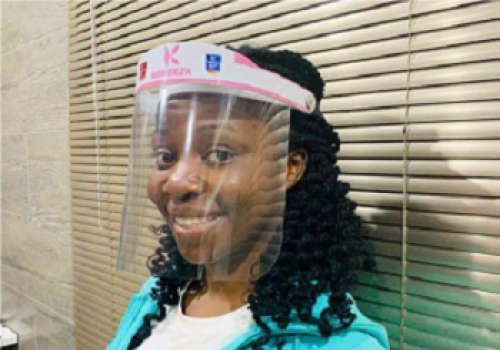The Southern African Development Community (SADC) is improving private sector participation in the medical value chains, thanks to the Support towards the Industrialisation and Productive Sectors (SIPS), a joint action aimed at assisting the Region's industrialisation and integration agenda.
Under SIPS Joint Action, 14 companies in the SADC Region have received support to strengthen the development of regional value chains in the COVID-19 related medical and pharmaceutical products (CMPP). The €18 million Joint Action SIPS is co-funded by the European Union and the German Federal Ministry for Economic Cooperation and Development.
Among the 14 companies from the SADC Region which are being supported by the SIPS Joint Action is Malawi-based company, Intelligent Monitoring Systems (iMoSyS). This company received a €100,000 grant to expand its production capacity of high quality, affordable face shields for health care workers in public and private facilities, and other workers in small and medium enterprises in critical sectors of the economy.
The company will initially serve the domestic market and will work towards serving the markets of other SADC Member States. Under its core business, iMoSyS utilises a variety of innovative software products to produce digitally fabricated items and offers engineering and management services in Malawi. The company collaborates with national training institutes in Malawi to provide training opportunities for students.
Reacting to the extreme shortages of personal protective equipment at the onset of the COVID-19 pandemic, IMoSyS adjusted its operations and ventured into the manufacturing of medical face shields, with the technical support from the University of Cambridge (UK) and the Malawi Polytechnic University as well as end-user input from health workers in major Malawi hospitals.
IMoSyS will use innovative production technologies, including laser cutting and computer-aided design to improve the face shields production process. The face shields are reusable after cleaning and disinfecting, making them a sustainable and cost-effective tool to fight the pandemic.
The face shields are designed for durability and user's comfort to guarantee prolonged use for over 12 hours at a time. Despite this innovative approach, face shields are affordable as the final price is half the price of similar products available on the market.
This grant provided by the Joint Action SIPS will specifically target United Nations Sustainable Development Goal 3 (SDG) 3 which seeks to "Ensure healthy lives and promote well-being for all at all ages".
Local production of face shields will build skills, capacity, and jobs - contributing to SDGs 8 and 9 which target "Decent work and economic growth" and "Industry, innovation, and infrastructure".
The grant supports the SADC Industrialisation Strategy and Roadmap that prioritises innovation and advanced technologies to achieve competitiveness and productivity growth. The grant will finance the procurement of production equipment and raw materials to increase IMoSyS manufacturing capacity.
The company targets to increase its production from 300 face shields to 700 face shields a day. It estimates this could create employment for up to 35 additional staff, of which 40% should be female.
In addition, the company will make use of a recent partnership with the University of Malawi to support students' employability where job opportunities are identified. In the future, the production facility will be opened for university students to conduct experiments and use the equipment for their projects.
This will improve their practical engineering skills, give them hands-on experience, and develop their skills and expertise for future employment. As part of its corporate social responsibility, the company seeks to donate 5,000 face shields to health workers and rural primary schools to prevent the future spread of Covid-19.

